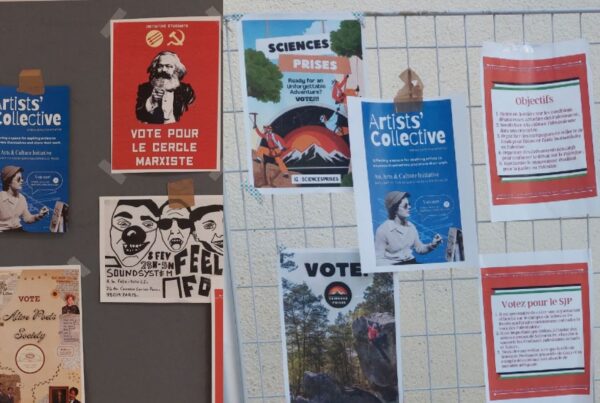Halfway through the semester, it is time to uncover what life at the Reims campus of Sciences Po is really like for us, exchange students. Armed with survey responses from forty-two of my fellow temporary expatriates, I present a semi-scientific analysis of our collective experience of a French adventure.
For many of us, Sciences Po proved quite different from our initial expectations. The allure of Sciences Po’s reputation – and yes, that oft-cited QS ranking – drew many of us here with considerable expectations. But how is that working out? Well, 47.5% of us think the teaching is worse than back home (turns out endless presentations and doing homework are not the height of academic rigor), but what about the campus itself? That is a different story. A solid 63.4% give it better marks than their home universities. The Sciences Po charm appears particularly potent—or at least the name does—as 59.5% are considering returning for their master’s degrees.
It is common for people to choose a university for an exchange on the basis of the city in which it is located. This might have been misleading for some, as this school has Paris in its name. So who really wanted to come here? 68.3% of us actually chose Reims on purpose and not just because Paris was full. But would we do it again? Well, when asked about it, different opinions bubble up. 53.7% would stick with Reims, 26.8% would try their luck at another Sciences Po campus, and 9.8% would bid farewell to France entirely.
Since everyone has made it to Reims, how did they integrate into the campus and the city? Here is where it gets interestingly sad. Half of us have exactly zero French friends. And 35.7% have gone full exchange-student-bubble, hanging out exclusively with each other. Not a single person surveyed has more than 30% French students in their circle of friends.
Additionally, a lot of students came to France wanting to improve their French. When asked about it, most said they struggle to fully immerse themselves in the French language. Even though they were in France, many ended up stuck in an English-speaking international bubble, with not much interaction with French students, who seemed to stick to themselves. A lot of them wished that there were more cultural activities and better ways to connect with French students to make the exchange experience more fulfilling.
Despite this perceived lack of local integration during their exchange, most are still very happy with it. This may be because they are exploring other ways of having a more authentic local experience. They compensate by smoking and drinking more, trying to integrate themselves regardless of the presence of French people. In total, 64.3% say they drink more and 31% smoke more. Although 42 participants is not enough to prove a significant correlation between these new habits and how well you have integrated, we all know that there is a connection.
This quick look at life on Sciences Po’s Reims campus shows both the good bits and the bad. What is clear is that every exchange student has their own path and their own experiences. It is impossible to have one overall exchange experience. Instead, it is a collection of many different memories and personal experiences that is impossible to combine into such a little survey. But for those still wanting to dive deeper into it, you can explore the results of the survey here.
Other posts that may interest you:
Discover more from The Sundial Press
Subscribe to get the latest posts sent to your email.





